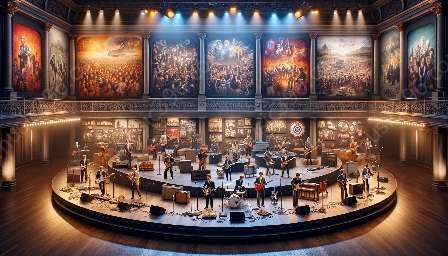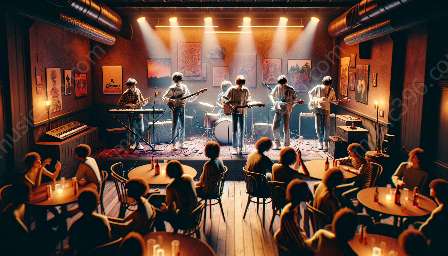Rock music holds a unique position in the realm of popular music, stemming from its ability to evoke profound feelings of nostalgia and connection to personal and collective identities. This article explores the influence of nostalgia in shaping individual and collective identities through the lens of rock music.
The Power of Nostalgia in Rock Music
Nostalgia, a sentimentality for the past typically associated with positive feelings, is a potent force in music, often intertwined with the evolution and identity of rock music. The genre's ability to conjure nostalgia through its emotive power lies at the heart of its enduring appeal and impact on personal and cultural identities.
Connection Between Rock Music and Identity
Rock music serves as a vital backdrop to pivotal moments in individuals' lives, providing a soundtrack to adolescence, rebellion, love, and loss. The identification with rock music and its associated subcultures often becomes an integral part of one's self-identity, influencing personal style, values, and attitudes.
Impact on Personal History and Identity
The influence of rock music on shaping personal identity is profound. Its ability to evoke deep-seated emotions and memories fosters a strong connection to specific periods in a person's life. Whether it be the anthemic soundtracks of youth or the evolution of taste and worldviews, rock music plays a pivotal role in the construction of personal identity.
Rock Music as a Vehicle for Collective Identity
Rock music has also served as a unifying force, providing a platform for generations to express shared ideals and rebellious tendencies. The collective identity forged through rock music transcends individual experiences and becomes emblematic of cultural and social movements, fostering a sense of belonging and solidarity among diverse communities.
Evolution of Rock Music and Identity
As rock music continuously evolves, so too does its influence on identity. The genre has witnessed shifts in style, message, and cultural significance, impacting the identities of successive generations. Whether through the countercultural movements of the 1960s, the punk and alternative rock scenes of the 1980s and 1990s, or the resurgence of indie and alternative rock in the 21st century, rock music remains instrumental in shaping evolving identities.
Conclusion
Nostalgia, embedded within the fabric of rock music, plays a pivotal role in shaping individual and collective identities. Its ability to evoke powerful emotions and memories serves as a bridge between the past, present, and future, influencing personal narratives and societal movements. As rock music continues to resonate across generations, its enduring impact on identity remains a testament to the profound connection between music, nostalgia, and the construction of self and society.


















































